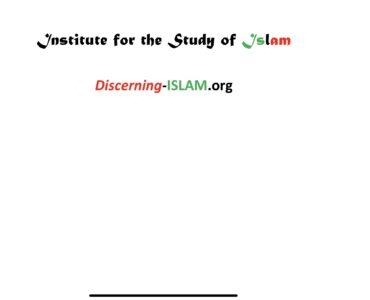
Final Judgment
The final judgment is God ’s last and complete assessment, not only of all humankind but of all creation. It is little wonder the final judgment is one of the most repeated themes of the Qurʿān; the final judgment made belief in the unity and oneness of God not merely an issue of theology but an issue of one ’s eternal fate. Although the core belief of Islam is tawḥīd, or the oneness of God, the final judgment is the expression of God ’s singular power to judge every individual according to his or her own deeds.u
The final judgment, and the notion that God, not other humans or the gods of nature, is the ultimate arbiter of a person ’s worth and life, ran counter to the dominant pre-Islamic beliefs in tribal honor and in polytheistic deities. Most pre-Islamic Arabs believed that there was only one life and one death. Judgment and the chance for heroic immortality for pre-Islamic Arabs were mainly limited to the extent of one ’s acts of honor for the tribe. As the young, orphaned Muḥammad would have known, individual worth and ethics meant little in the pre-Islamic world when compared to the ideals of tribal honor and success in this life. In contrast, under Islam every individual, regardless of tribe, ethnicity, or gender, is assessed during the final judgment. Yet even as the final judgment isolates and equalizes the individual according to his or her true beliefs and actions, the day of judgment is also a supreme expression of the collective — the final gathering together of the ummah (the Muslim community) and the rest of God ’s creation into a perfected realm of heaven and hell. In this sense, the final judgment resolves a central paradox inherent in any monotheistic belief system: how to reconcile belief in a perfect, single creator with the experience of an imperfect, multitudinous creation.
There have been many lively disputes among scholars speculating about the origins of notions of the final judgment in Islam. Some scholars have suggested that Islam was, from the first revelations to Muḥammad, almost entirely an apocalyptic movement. These scholars suppose that one of the main reasons for the success of Muḥammad ’s message among the incredulous peoples of Arabia was that there was going to be an imminent day of resurrection. Qurʿānic verses lend support to the argument that it will be “as the twinkling of the eye or even nearer” (Qurʿān 16:77) and it will occur suddenly (Qurʿān 6:31, 7:187, 12:107). Some have even supposed that Muḥammad deliberately failed to designate a successor because he predicted that the final judgment would occur after his death. Several Qurʿānic verses, however, make it clear that only God, not even the Prophet, can know the exact time of the final judgment (Qurʿān 7:187, 31:34, 33:63, 41:47, 79:42–44).
There is a very large number of references to the last judgment in the Qurʿān. Nevertheless, most of these references are fairly brief and do not create a detailed picture of the last day, let alone its complete significance. A more complete and elaborate narrative and interpretation of the last judgment was developed in the centuries after the death of the Prophet Muḥammad and the compilation of the Qurʿān under Caliph ʿUmar. Some of the first elaborations appeared in ḥadīth literature, the written sayings of the Prophet Muḥammad, and in tafsīr, exegesis of the Qurʿānic text.
Given the central importance of the last judgment as an ultimate expression and final affirmation of Islamic doctrine, the development of the meaning of the last judgment was intricately tied to the development of Islamic theology and philosophy, especially in the ʿAbbāsid period when the foundations of Islamic orthodoxy were being established. One of the most important debates of Islamic theology in this period concerned God ’s true nature. Did God have a bodily presence, or was he a purely incomprehensible spiritual being, or both? God ’s actions during the final judgment were the central focus of this debate. The Qurʿān describes God during the last judgment in a very physical way; he sits on a throne and uses his hand. These physical descriptions led to disputes over the question of God ’s physical presence. Another important theological dispute centered around the nature of fate and free will. Did the last judgment mean that humans were predestined to their fate in heaven and hell? Did humans have a choice to do right and wrong, and if they did, did this negate God ’s all-encompassing power and knowledge? After much argument, the orthodox Sunnī opinion on both of these important theological debates about the last judgment was to emphasize the limits of human ability to answer such questions.
The last judgment would also have a profound role in the development of Shi’ism, especially the majority Shīʿī Twelver branch. According to Twelver Shi’ism, the twelfth Imam, legitimate leader of the Muslim community and twelfth male descendant of the Prophet ’s cousin and son-in-law ʿAlī, had gone into occultation. After a long period of occultation the twelfth Imam would emerge again as Mahdī (“guided one”) and usher in the last judgment.
A large number of millennial movements have gained traction throughout Islamic history based on the imminent expectation of the last judgment. Sometimes they led to unexpected periods of stability and unity. The Almohad movement of Berber tribesmen in twelfth-century north Africa, the rise of the Fāṭimids in what is now Tunisia in the ninth century, and the rise of the Ṣafavids under Ismāʿīl in what is now Iran were all originally based on imminent expectations of the last judgment and all led to long-lived empires. Even today Muqtadā al-Ṣadr, leader of the Shīʿī Mahdī Army in Iraq, bases much of his charismatic appeal upon the expected imminent return of the awaited one, the Mahdī, who will usher in the last judgment in a time of great uncertainty and chaos.
Final Judgment
652 – 017
Last Updated: 07/2021
Copyright © 2017-2021o Institute for the Study of Islam (ISI) | Institute-for-the-study-of-Islam-org | Discerning Islam | Discerning-Islam.org | Commentaries on Islam | © 2020 Tips Of The Iceberg | © 1978 marketplace-values.org | Values In The Marketplace | are considered “Trade Marks and Trade Names” ®️ by the Colorado Secretary of State and the Oklahoma Secretary of State. All Rights Reserved.



